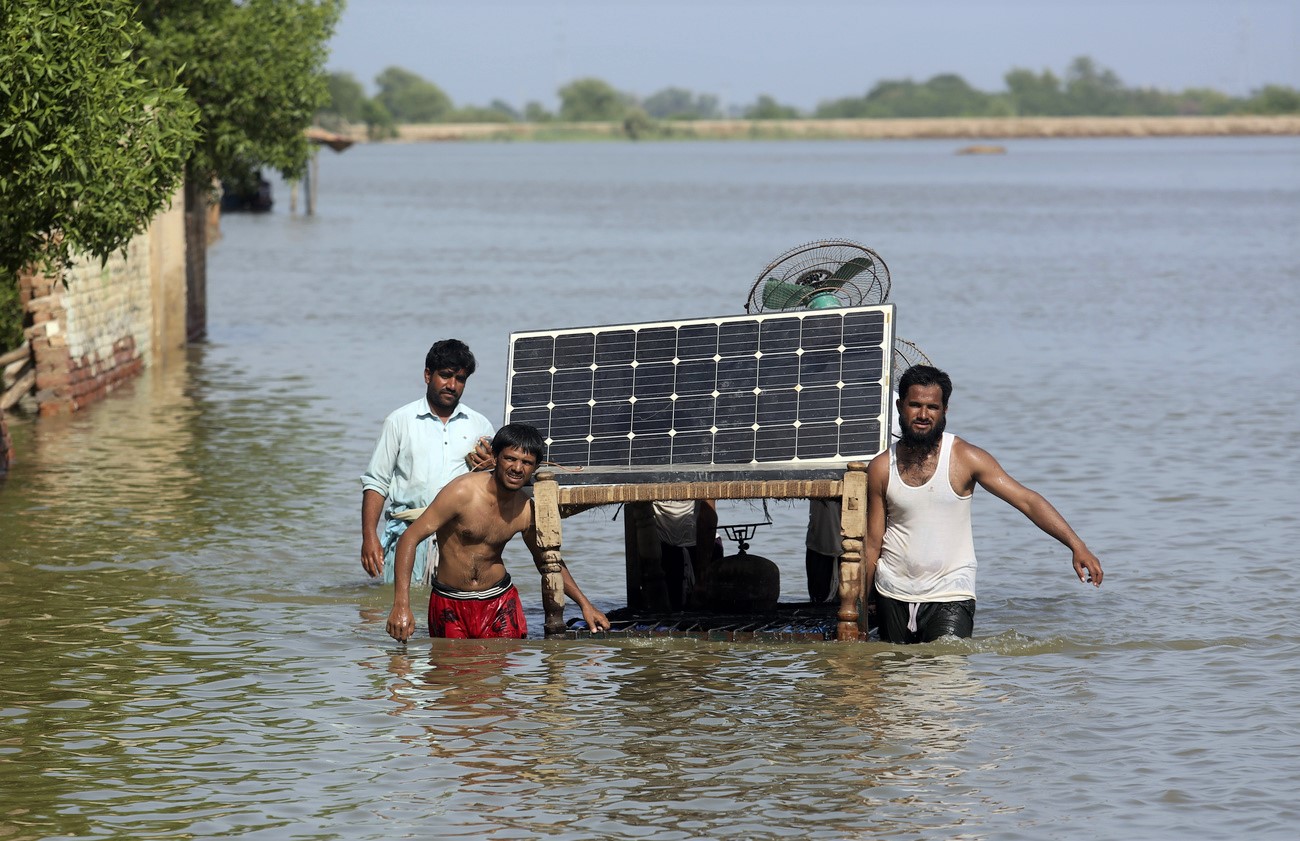
Greenpeace warns of global warming impact in Switzerland

The environmental organisation Greenpeace has warned that Switzerland is more affected by global warming than the global average.
Temperatures have already risen by almost 2° Celsius in Switzerland, Greenpeace said on Monday in response to the latest synthesis report the United Nation’s Intergovernmental Panel on Climate ChangeExternal link (IPCC).
Switzerland must therefore quickly face up to the challenges of climate change, according to the environmental group.
For several years, higher temperatures in Switzerland have led to an increase in the frequency of extreme weather events, recurring droughts, heatwaves, a decrease in the amount of snow, the disappearance of glaciers and the thawing of permafrost.
+ Study predicts demise of European glaciers
From now on, the world’s political decision-makers must base their climate policies on the IPCC document that has now been published, Greenpeace said.
Not too late
It’s not too late to limit global warming to 1.5°C but action must be taken immediately. It called on voters to approve a law aimed at zero greenhouse gas emissions by 2050.
Meanwhile, the environmental organisation WWF has called on governments worldwide to speed up efforts to combat global warming.
It said the IPCC report showed the urgency to implement existing solutions more quickly, notably the phase-out of fossil fuels.
This requires a conversion of the entire economy and is quite possible, according to climate scientists. The authors of the report argue the production of renewable energy must be expanded rapidly while the price for solar and wind energy has fallen drastically in the past decade.
The 37-page synthesis report was distilled from thousands of pages of previous assessments after a week of deliberations in the Swiss town of Interlaken.
UN Secretary General António Guterres warned that the “climate time bomb is ticking”, saying as there was little time to lose in tackling climate change.

In compliance with the JTI standards
More: SWI swissinfo.ch certified by the Journalism Trust Initiative





























You can find an overview of ongoing debates with our journalists here . Please join us!
If you want to start a conversation about a topic raised in this article or want to report factual errors, email us at english@swissinfo.ch.